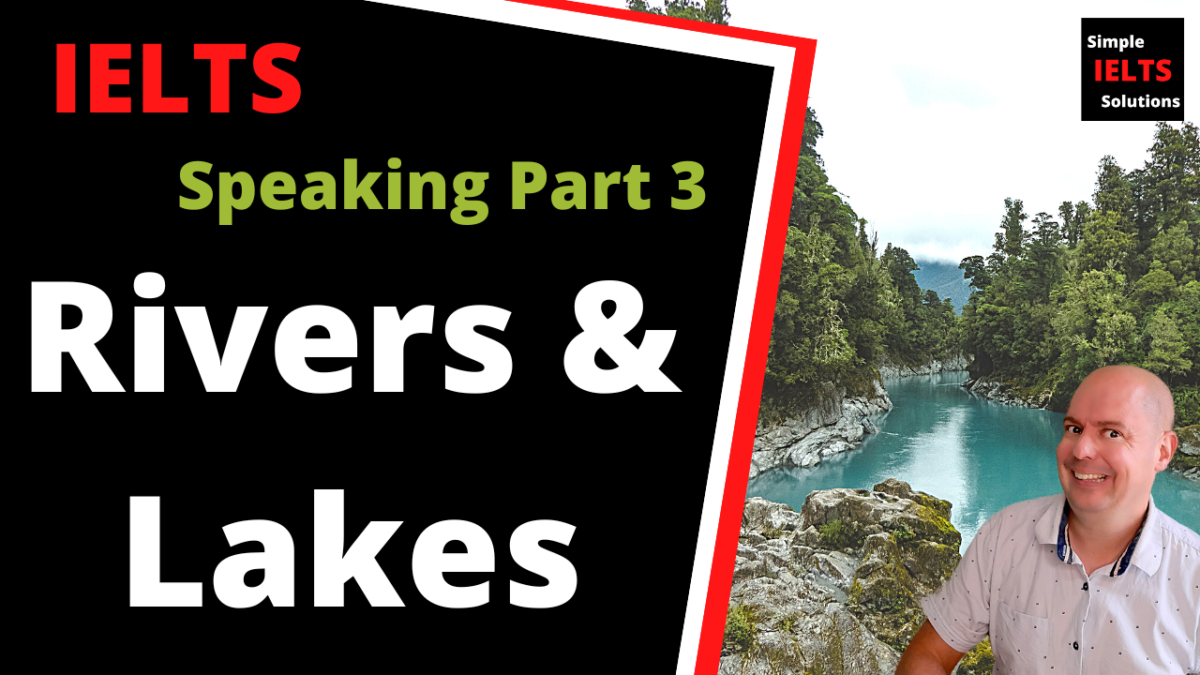This is a recent IELTS speaking part 3 model answer, ‘How do rivers and lakes benefit local people?’ Many of my students have recently struggled to answer questions on this topic recently. This post and video will give you an example of an answer and explain the vocabulary that you could use in the future. Read on or watch the video to find out more.
The question is: How can rivers/lakes benefit local people?
There are numerous ways that waterways and lakes can be beneficial to locals.
Firstly, they allow transportation and trade. Many large cities are situated on big rivers and have huge ports to facilitate trade with other nations.
Secondly, these bodies of water are often quite appealing and picturesque so will attract tourists and locals alike, who want to spend time hanging out on or around the water.
Finally, they are a vital lifeline for so many local people, who rely on them for everything in their life and livelihood. If they live on the river, they probably do everything in that water from washing to catching fish.
Rivers and lakes are critical to populations and I don’t think that will change any time soon.
Linking phrase/Discourse markers
Firstly, secondly – Signpost each point for the listener
Vocabulary
Waterway (n) – Rout travelled by water (River, lake or canal)
Beneficial (adj) – Advantageous or favorable
Facilitating (v) – Making it easy
Body of water (idiom) – Large area of water
Lifeline (n) – Something that keeps you alive
Livelihood (n) – Way of getting things needed for survival
I hope that you found this post useful and that you will be able to answer questions on this topic if you get it in your IELTS speaking test.
To see another post about IELTS speaking part 3 answers follow this link.

